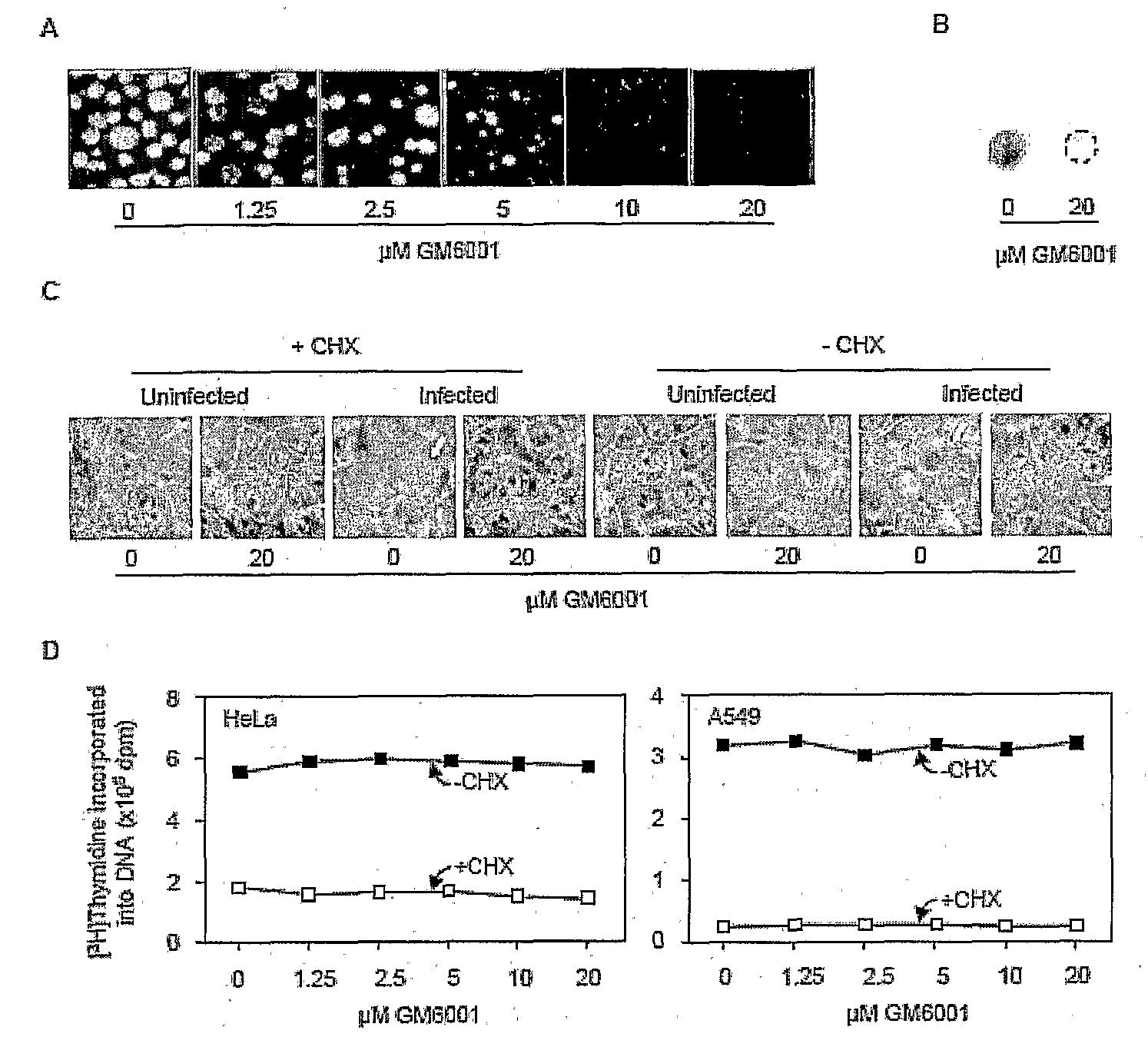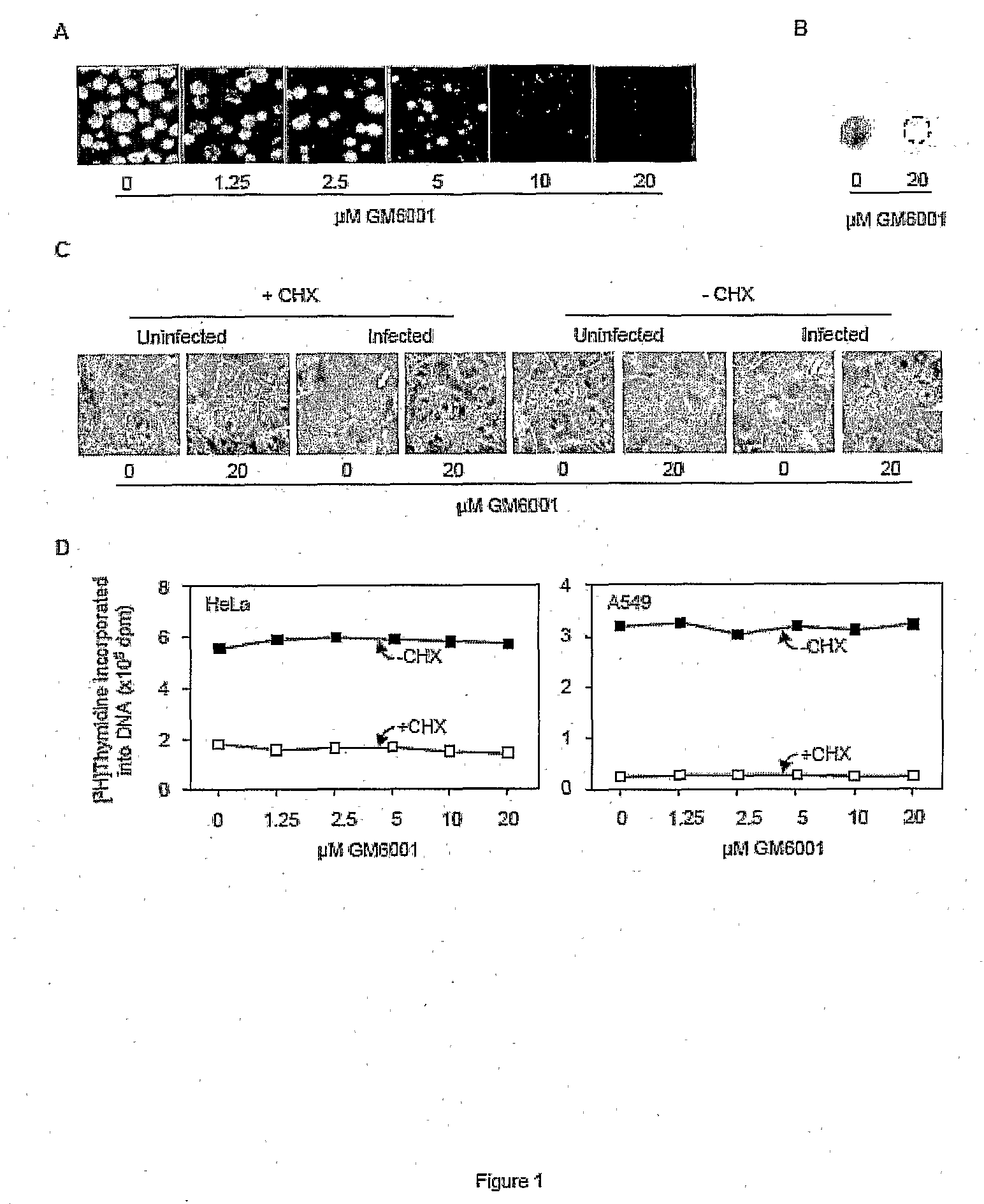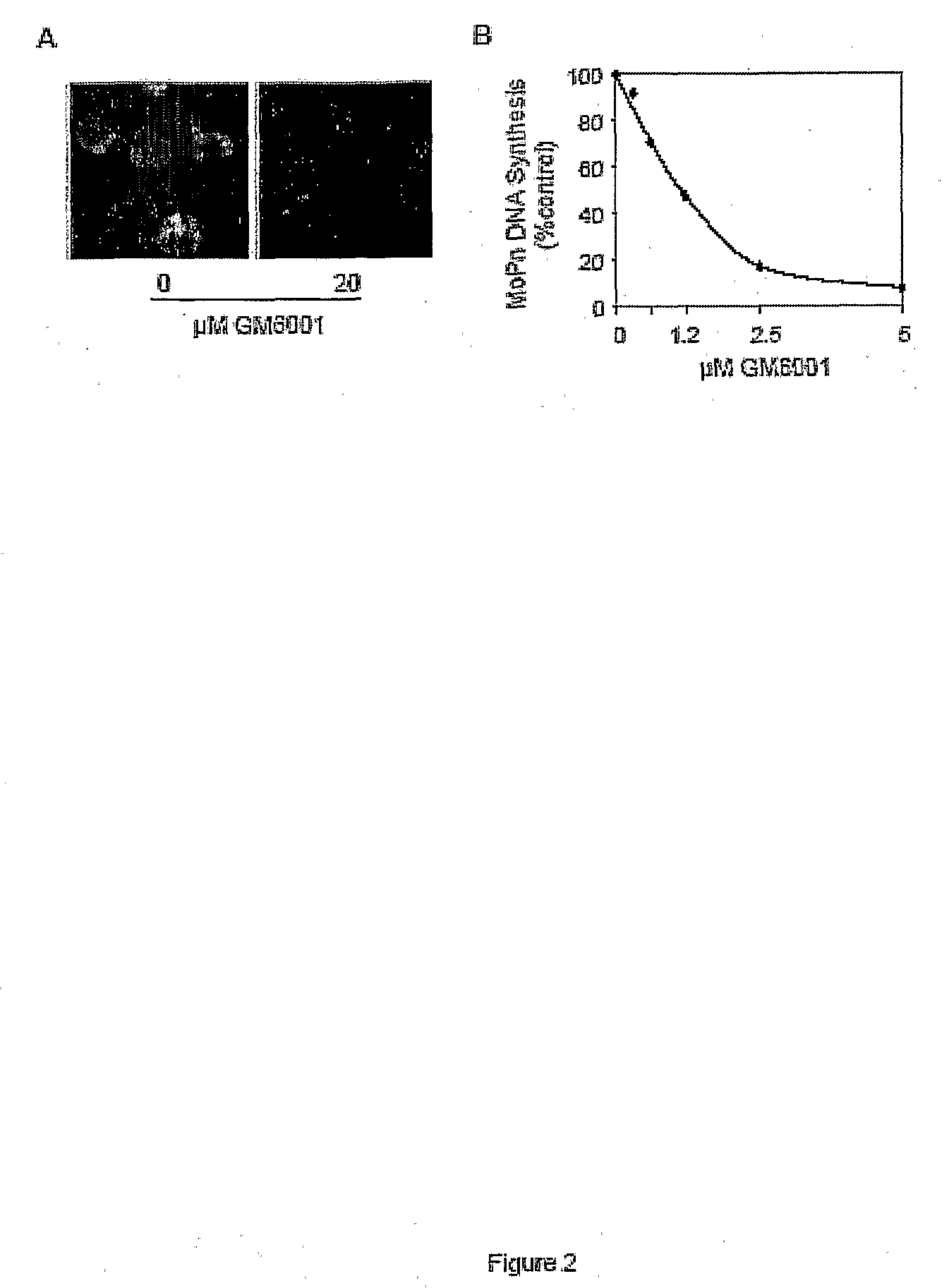Non-Antibiotic Intervention of Chlamydial Infection
a chlamydia and non-antibiotic technology, applied in the field of non-antibiotic intervention of chlamydia infection, can solve the problems of frequent recurrence and difficult elimination of chlamydia, and achieve the effects of novel preventive and therapeutic effects, less resistance, and blocking the intracellular development of chlamydia
- Summary
- Abstract
- Description
- Claims
- Application Information
AI Technical Summary
Benefits of technology
Problems solved by technology
Method used
Image
Examples
example 1
Inhibition of L2 (Biovar LGV) growth by GM6001
[0047]Human cervical carcinoma HeLa cells grown on coverslips were exposed to an EB stock of strain 434 / bu of serovar L2 (L2, biovar LGV) for 2 hours, washed to remove free EBs, and cultured in medium containing indicated concentrations of GM6001 plus 1 μg / ml cycloheximide, an inhibitor of eukaryotic protein synthesis which is commonly used to facilitate chlamydial growth. 40 hours later, cells were fixed with methanol, and reacted for 1 hour with a monoclonal antibody against the major outer membrane protein (MOMP) of L2. After three washes with PBS, coverslips were reacted with fluorescein isothiocyanate-conjugated goat anti-mouse IgG (Sigma, St. Louis, Mo.) for 30 min. After additional washes, coverslips were mounted onto glass slides and viewed with a Nikon Eclypse E1000 fluorescent microscope. As shown in FIG. 1A, the number of inclusions declined progressively as the concentration of GM6001 increased.
[0048]The inhibition of L2 grow...
example 2
Inhibition of the Growth of Biovar Trachoma and Mouse Biovar by GM6001
[0051]We next tested whether GM6001 was also effective against the remaining two biovars of C. trachomatis. GM6001 efficiently suppressed inclusion formation by strain UW-3 / Cx of serovar D (biovar trachomatis) as shown by immunostaining using a monoclonal antibody that recognizes chlamydial lipopolysacharide (FIG. 2A). The effect of GM6001 on biovar mouse was determined by measuring chlamydial DNA synthesis with procedures that we previously detailed (1, 3). A dose-response curve of GM6001 inhibition of MoPn growth was obtained (FIG. 2B). Thus, our results suggest that GM6001 inhibits the infection of all three C. trachomatis biovars in multiple cell types.
example 3
Inhibition of L2 Growth by TAPI-0
[0052]TAPI-0 strongly inhibited L2 infection at both 7.5 and 15 μM as shown by MOMP immunofluorescence (FIG. 3A), while no cytotoxicity was observed at either concentration as judged by cellular morphology (data not shown) and by DNA synthesis of HeLa cells (FIG. 3B). Therefore, inhibition of chlamydial infection appears to be a common property of hydroxamate-based metalloprotease inhibitors.
PUM
| Property | Measurement | Unit |
|---|---|---|
| concentrations | aaaaa | aaaaa |
| weight | aaaaa | aaaaa |
| composition | aaaaa | aaaaa |
Abstract
Description
Claims
Application Information
 Login to View More
Login to View More - R&D
- Intellectual Property
- Life Sciences
- Materials
- Tech Scout
- Unparalleled Data Quality
- Higher Quality Content
- 60% Fewer Hallucinations
Browse by: Latest US Patents, China's latest patents, Technical Efficacy Thesaurus, Application Domain, Technology Topic, Popular Technical Reports.
© 2025 PatSnap. All rights reserved.Legal|Privacy policy|Modern Slavery Act Transparency Statement|Sitemap|About US| Contact US: help@patsnap.com



